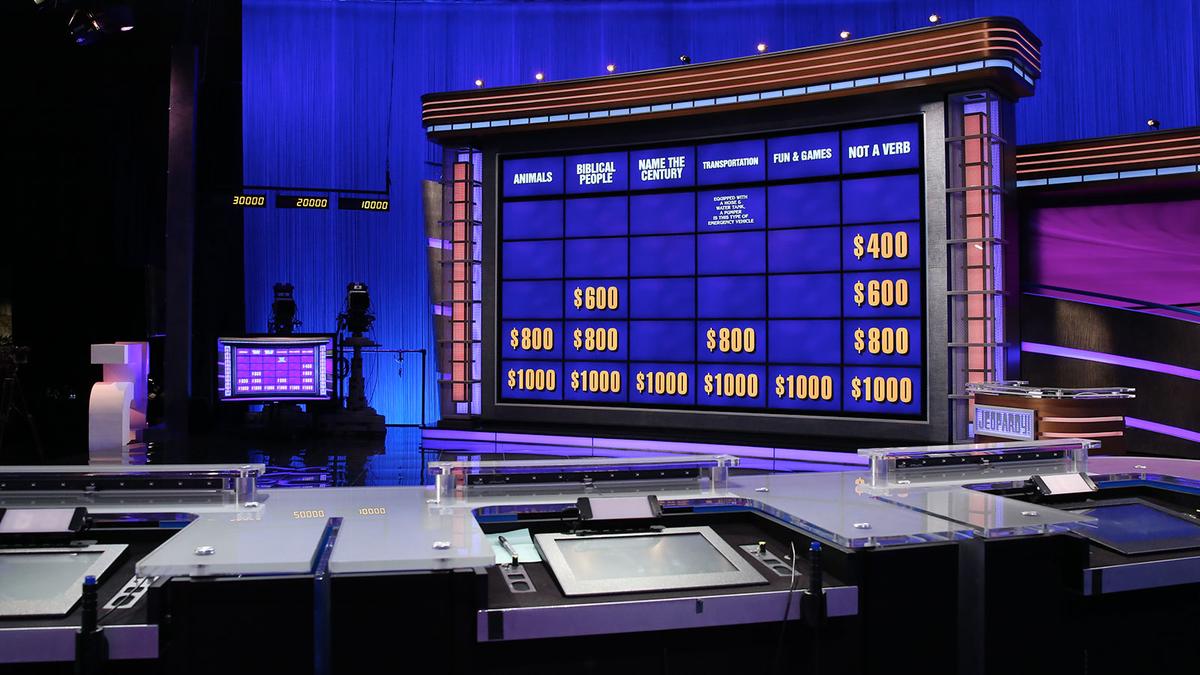On Oct. 6, 2014, Mariusz Galczynski, at the time a PhD candidate in the Faculty of Education watched the taping of an episode of Jeopardy!. He had passed the many required tests in order to be on the show, and it was almost his turn to compete.
“Anyone who knows me of my friends knows that I love the Spice Girls and Celine Dion,” Galczynski said in an interview with The McGill Tribune. “[In the game before mine], there was a Celine Dion question and then Final Jeopardy. The answer was the Spice Girls and no one knew of the contestants. So, right away, I was like ‘Agh, my god, I wish I was playing that game.’”
Jeopardy! records a week’s worth of episodes in one day of taping, and Galczynski was up next on the Tuesday episode. He won $20,350 in his initial appearance before losing the following ‘day’ in an episode taped 15 minutes after the first one ended.
When his winning episode aired on Nov. 25, Galczynski hosted a viewing party at Thomson House, where he and his friends used to participate in trivia nights.
“I invited all my friends that could make it, and it was great,” Galczynski said. “We watched the episode live. I knew the result, but they didn’t, and, when you watch the episode, it was a really close game and also pretty exciting [….] Obviously, they’re rooting for you to win, so it was awesome to deliver that at the end of the episode.”
Throughout Montreal trivia-junkies host events at pubs, basements, and student unions. Venues around campus host themed nights with The Office, Game of Thrones, or even Shrek-specific trivia. For more general-knowledge-based questions, chemistry professor. David Harpp has hosted his Centraide Trivia Nights at the Faculty Club for the past nine years.
“My daughter teaches at a university in the [United States], and I was visiting her about 12 years ago, and she said, ‘Do you want to go to a trivia night?’,” Harpp said in an interview with the Tribune.
Harpp’s trivia nights attract the McGill community, Montreal residents, and even a regular visitor from the University of Waterloo. As quizmaster, he runs seven rounds of 10 questions on a Powerpoint slide show. Harpp explained that, in preparation for competitions, he thoroughly researches his questions.
“If I think of [a potential question], like ‘that’s an interesting thought,’ I’ll just research it and make sure that it’s at least ‘Wikipedia right,’ which is probably about 98 per cent sure,” Harpp said.
At Harpp’s trivia nights, around 30 teams of four or five discuss the questions at their tables and submit their answers on scorecards marked by undergraduate students.
“[It] gets very noisy [and] very competitive,” Harpp said. “[There’s] high-fiving, and [then also] a little bit of gentle cursing when they get something wrong or are talked out of a right answer at the table.”
A similar spirited atmosphere is present at the McGill Trivia Club’s events. The club meets twice a week in library group study rooms to practice for Quiz Bowl competitions with other schools across Canada, the U.S. and the U.K. Club president Akhil Garg has been participating in trivia competitions for nine years. He enjoys trivia competitions as a way to absorb new information.
“It’s all about learning new things,” Garg said. “I specialize in science and social science. As a medical student, I’m mostly studying biology, so trivia lets me study [all of the other sciences]. It’s a way to really expand my knowledge base.”
Overall, participants’ appreciation of learning promotes healthy competition. Garg compared this relationship to his favourite piece of trivia.
“There’s this thing called Bergman’s rule, which is that species in higher latitudes tend to be larger,” Garg said. “We at McGill Trivia always like to joke that we’re bigger than the clubs we compete against.”
A friendly atmosphere goes a long way in the trivia world even though competitions can get tough. Harpp agrees: Trivia remains competitive, even at home.
“My wife plays [at my trivia nights] with a team,” Harpp said. “She doesn’t get any inside answers. If I’m playing a piece of music, she’ll say ‘Who’s that?’ and I’ll say ‘That’s for you to find out.’”








